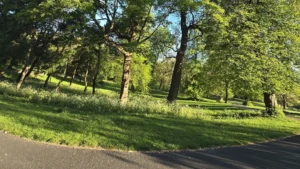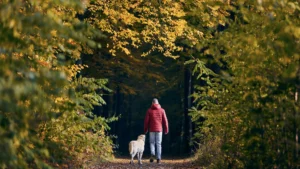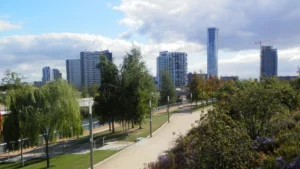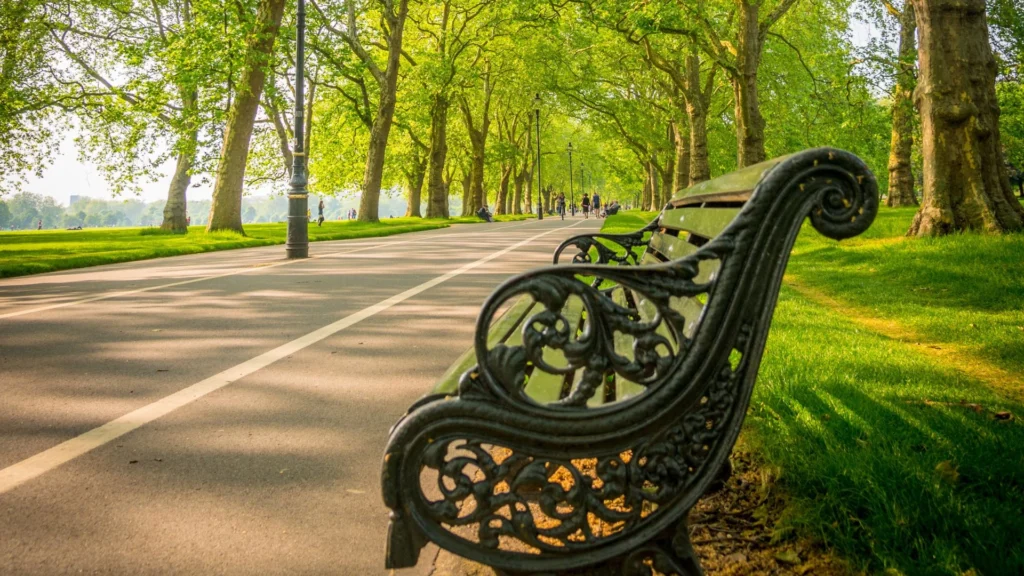There’s something about being outdoors—the feel of the breeze on your skin, the rustling of leaves, the chirping of birds—that just makes life feel lighter. It’s not just a pleasant break from indoor routines; green spaces can genuinely transform your mental health. And it’s not some vague wellness myth—there’s hard science behind it.
From reducing anxiety to easing symptoms of depression, nature offers free and effective support for our wellbeing. If you’ve ever taken a stroll in the park and come back feeling refreshed, you’ve already experienced the magic.
Green Spaces: More Than Just Pretty Places
When we talk about green spaces, we mean parks, woodlands, community gardens, and even tree-lined streets. They’re places where nature has room to breathe—and so do we.
Research from Mind confirms that spending time in nature can lift your mood, reduce feelings of stress or anger, and improve confidence. And it doesn’t have to be a grand escape into the mountains—even a half-hour walk through a local park can do wonders.
This is exactly why initiatives like the Walk & Talk – Men’s Prosperity Club Event are making such a difference. They offer a relaxed, pressure-free way for men to connect, get outside, and simply breathe in a bit of fresh air while sharing a conversation.

Nature Changes the Brain—Literally
Here’s where things get interesting. Time spent in green spaces doesn’t just feel good—it creates measurable changes in the brain. One study published in Nature Neuroscience found that people who walked for 90 minutes in a natural environment showed decreased activity in the part of the brain linked to rumination—a key symptom of depression.
Being in nature also lowers cortisol levels, the hormone your body releases when you’re stressed. It slows your heart rate and helps regulate your breathing. Basically, nature gets your body out of “fight or flight” mode and back into balance.
It’s Not Just About Solitude—It’s About Connection
While nature offers powerful solo benefits, it’s even better when shared. Walking in groups or joining community events around green spaces introduces a social element to the mental health benefits.
This is where the One Step at a Time: Boost Mental Health with Walking piece hits home. It highlights how simply moving your body in a natural setting, especially with others, creates a dual boost: physical movement and human connection.
These walks often lead to open chats, shared laughs, and unexpected support. No therapy rooms. No awkward silences. Just a walk, some green surroundings, and the kind of honest talk many of us didn’t realise we needed.

Why Green Spaces Matter More in Urban Living
If you’re living in a city, chances are your day is filled with concrete, screens, and deadlines. In urban environments, people are 20% more likely to experience anxiety and 40% more likely to develop mood disorders. That’s not a coincidence.
Green spaces break up the noise. They soften the hard lines of city life. A patch of grass, a few trees, or a community garden can make a world of difference. Urban planning experts are even urging councils to invest more in green spaces to combat rising mental health issues.
You don’t need an expensive retreat or a mountain holiday. Often, all it takes is noticing what’s already around you—and using it.

The Science Backs It Up
Let’s get into the numbers for a moment. Here’s what recent studies show:
- People living near more green space report lower mental distress and higher life satisfaction.
- Children exposed to nature regularly develop better attention spans and lower risk of emotional problems.
- Hospital patients with a view of trees recover faster and need less pain medication.
This isn’t a fad or feel-good trend. It’s real, measurable, and accessible to everyone.
Make Nature Part of Your Routine
Incorporating green spaces into your weekly routine doesn’t have to be complicated. Here are a few ideas:
- Take your morning coffee outside.
- Go for a walk in a nearby park on your lunch break.
- Plan weekend meetups with friends in outdoor settings.
- Attend local group walks—like the Men’s Prosperity Club Nature Walk and Talk Group, where men come together to share, support and breathe in nature’s benefits.

Nature as a Preventive Tool, Not Just a Cure
While medication and therapy have their place, many mental health practitioners are now recommending “green prescriptions”—encouraging patients to spend time outdoors regularly. In some UK areas, GPs are even working with community groups to prescribe time in green spaces instead of pills, especially for mild depression or anxiety.
It’s a shift from reactive to proactive care—treating root causes, not just symptoms. And it empowers people to take small, manageable steps toward better mental health.
Finding Peace Without Pressure
The beauty of nature is that it doesn’t ask anything from you. You don’t need to be productive, say the right thing, or even be in a good mood. It simply holds space.
For many men, in particular, this can be life-changing. The Men’s Prosperity Club understands this well. Their walks are built on the idea that healing doesn’t always need a couch and a therapist. Sometimes, it starts with a footpath, a chat, and a sense of being seen without judgment.

Final Thoughts: The Green Space You Need Might Be Closer Than You Think
You don’t have to change your whole life to see the benefits. Even five minutes outdoors can lift your mood. Start small. Be consistent. Look up from your phone and let yourself connect—with the trees, the sky, and maybe someone walking beside you.
In a world that constantly demands more, nature gently asks less. And in that simplicity, many of us find the calm we’ve been searching for.
Ready to experience the benefits for yourself?
Join the next Walk & Talk or sign up for the Nature Walk and Talk Group and take the first step—literally—toward better mental health.
Because sometimes, the best medicine isn’t in a bottle. It’s in the breeze, the branches, and the quiet space where you can finally hear yourself think.




